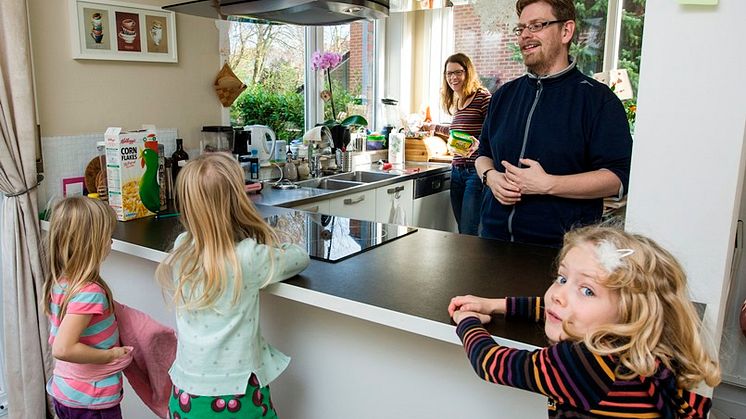Europa: un luogo di prim’ordine per vivere e lavorare?
L’Indagine europea sulla qualità della vita (EQLS) di Eurofound fornisce una visione unica sull’attuale qualità della vita dei cittadini europei.
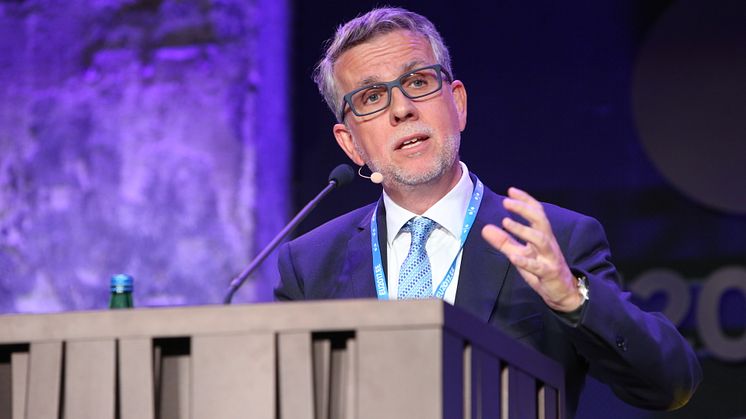
L’Indagine europea sulla qualità della vita (EQLS) di Eurofound fornisce una visione unica sull’attuale qualità della vita dei cittadini europei.

La encuesta europea sobre calidad de vida de Eurofound proporciona una visión única acerca de la calidad de vida actual de los europeos.

Results from Eurofound’s 2016 European Quality of Life Survey (EQLS) show general progress in the three key areas - quality of life, quality of society and quality of public services. Nevertheless, there remain signs of persisting inequalities and rising uncertainties in some areas with particular differences apparent between countries, gender, age and income groups.
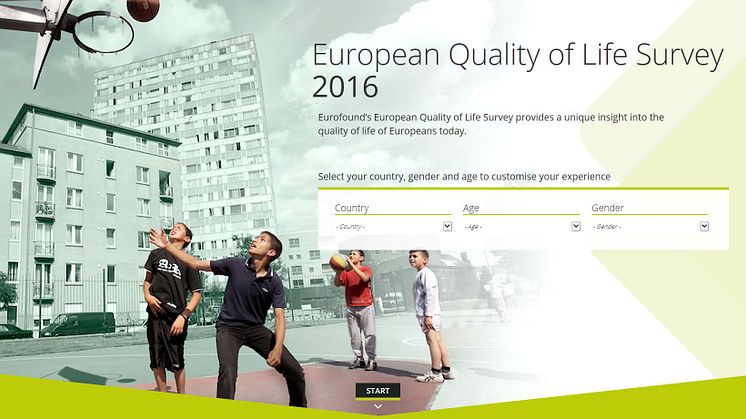
Eurofound will launch its new report on care homes for older Europeans at a special event on Tuesday 28 November 2017 in Europe House, Dublin.
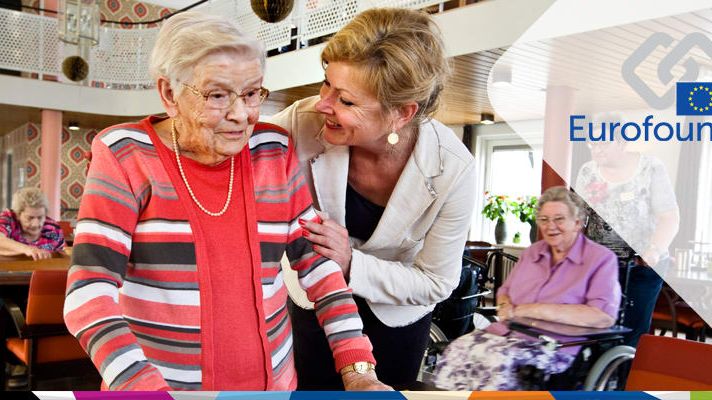
The Foundation Forum is Eurofound’s flagship event, aimed at reaching high-level policymakers in the field of social, employment and work-related policies. The event takes place in Dublin on 14-15 November 2017.
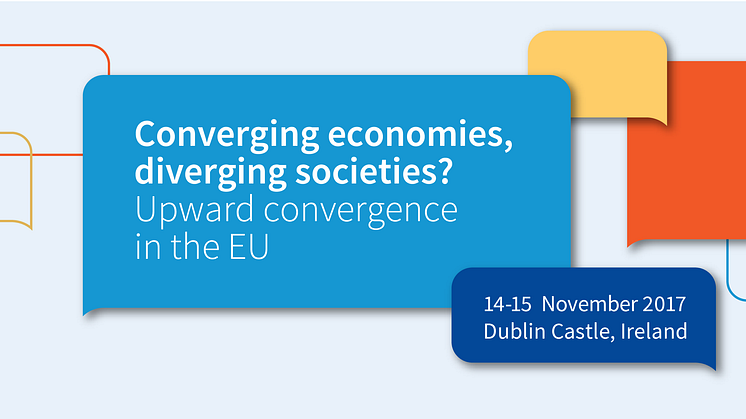
Friday 3 November is European Equal Pay Day. In the following blog piece Christine Aumayr-Pintar looks at the issue of pay inequality, contending that far from being a fair weather issue, addressing pay gaps should be an ongoing priority for Europe.
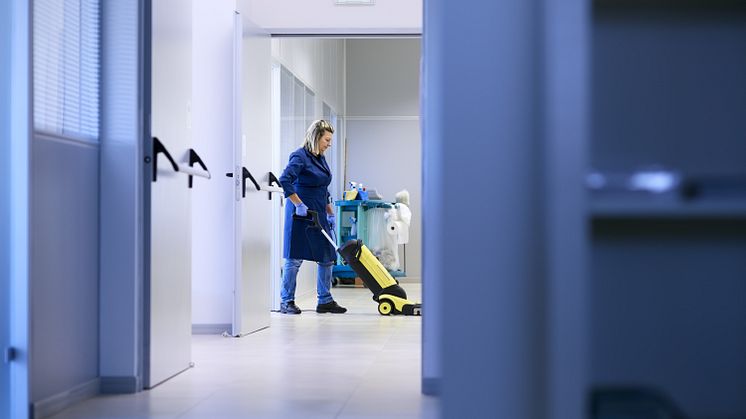
Working time is more than just clocking in and clocking out. In this blog piece, originally published in Social Europe, Jorge Cabrita looks at three reasons why working time in Europe should follow a life course perspective.

20 October is European Statistics Day, an initiative of the European Statistical Advisory Committee (ESAC) and with the support of the members of the European Statistical System and the European System of Central Banks.

This graph highlights the importance of education, indicating that in all EU countries except Finland, the at-risk-of-poverty rate is highest among people with the lowest level of education.
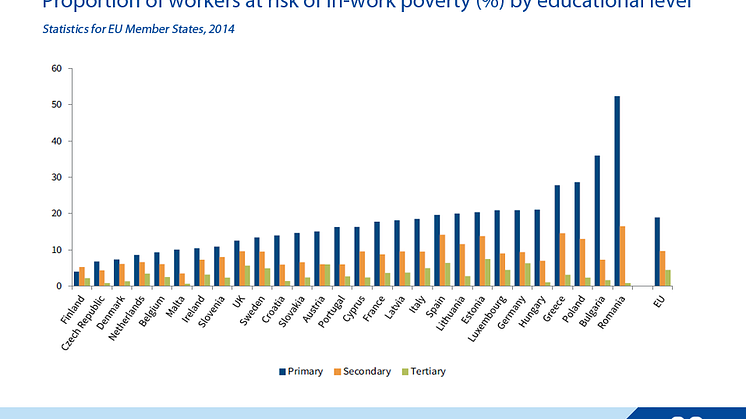
81% of workers say their working hours fit well, or very well, with their private life obligations. However men continue to have longer working hours (on average 6.5 hours per week more than women) and report more difficulties adapting working time to family life or other commitments.
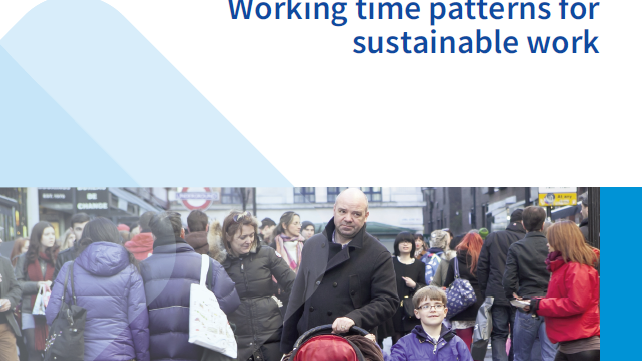
In this blog piece, originally posted on Social Europe, Eurofound Research Manager John Hurley looks at shifting employment structures in recent years.

The difference in working time between workers in the 28 EU Member States remains large and is especially marked between the ‘older’ 15 EU Member States and the 13 new Member States that joined the EU since 2004, according to new research from Eurofound.

Eurofound has launched a stakeholder survey in an effort to improve the way in which it reports on collective bargaining, and to transition from an initial focus on wage-bargaining outcomes to cover collective bargaining in a more holistic way,
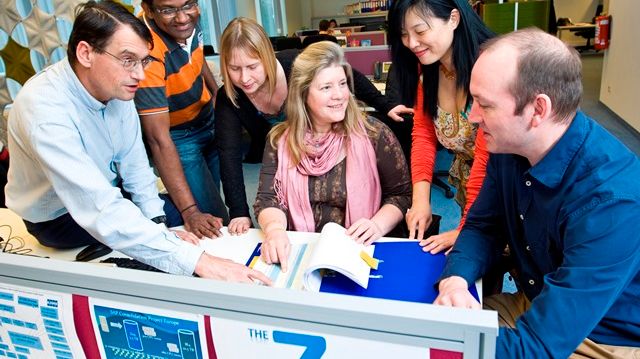
Labour market slack is the shortfall between the volume of work desired by workers and the actual volume of work available. The aim of this report is to develop a more nuanced estimate of labour slack using EU Labour Force Survey data, which allows involuntary part-timers and inactive people with some labour market attachment to be identified and quantified.
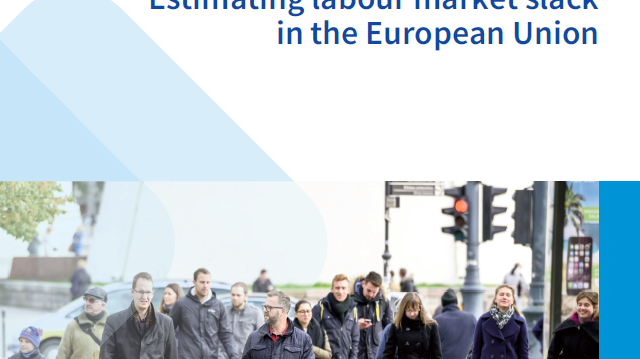
The Foundation Forum 2017 on 14-15 November will bring together up to 200 experts, policymakers, employer and worker representatives, national governments, thinkers and practitioners in Dublin Castle to hammer out the issues around upward convergence as a common goal of social convergence in living and working conditions in the European Union.
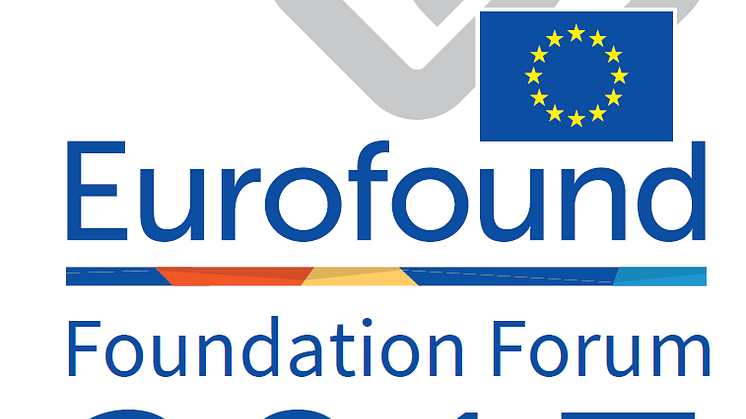
The EU’s population and workforce are ageing. This has implications for employment, working conditions, living standards and welfare. How should we respond to these challenges?
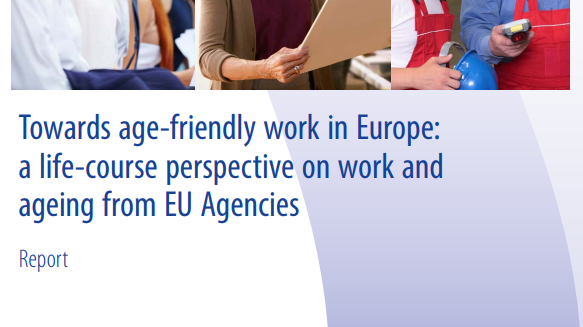
In the following blog piece, originally posted on Social Europe, Eurofound Head of Information and Communication Mary McCaughey takes a look at what it was like to live and work in Europe in 2016.
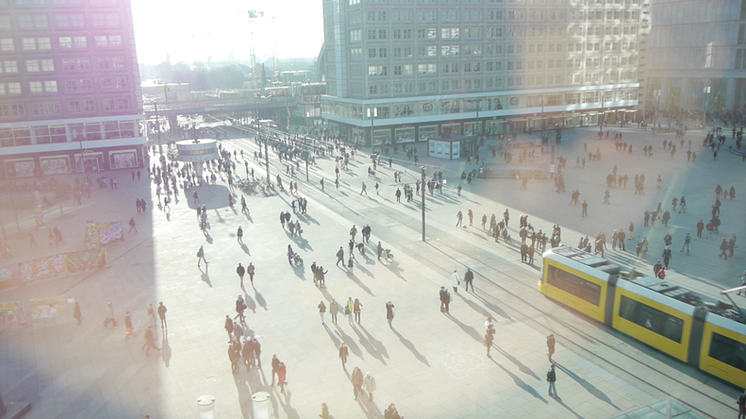
2016 was a landmark year for Europe, both politically and economically. Eurofound's 2016 yearbook shows the latest developments in the work and lives of Europeans, describing trends and transitions in the areas of employment and jobs, workplace practices, working life and quality of life.

17 May is International Day against Homophobia, Transphobia and Biphobia #IDAHOT, aimed at raising awareness of LGBT rights violations and stimulating interest in LGBT rights work worldwide.

International Day of Families on 15 May is a day that focuses on the role of families and family-oriented policies in promoting education and overall well-being of their members. Eurofound presents an overview of its research and policy pointers in family-oriented policies contributing to better living conditions and well-being in Europe
